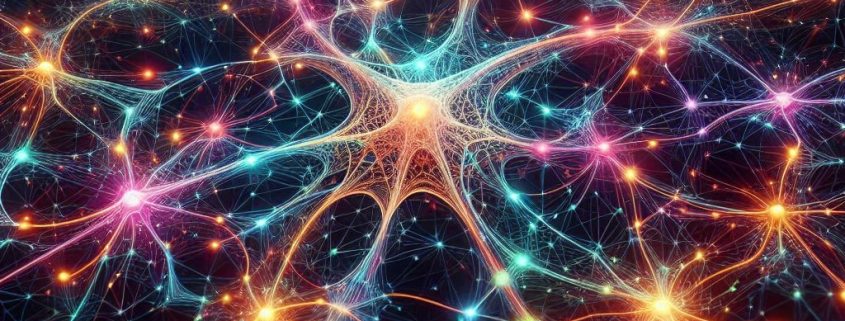An Overview of Liquid Neural Networks: Types and Applications
By Team Acumentica
Abstract
Liquid neural networks represent a dynamic and adaptive approach within the broader realm of machine learning. This article explores the various types of liquid neural networks, their unique characteristics, and their potential applications across different fields. By examining the distinctions and commonalities among these networks, we aim to provide a comprehensive understanding of this innovative technology.
Introduction
Artificial neural networks have evolved significantly since their inception, with liquid neural networks emerging as a prominent innovation. Unlike traditional neural networks, liquid neural networks exhibit continuous adaptability, making them suitable for environments with rapidly changing data. This article categorizes and examines the different types of liquid neural networks, highlighting their theoretical foundations and practical applications.
Types of Liquid Neural Networks
- Liquid State Machines (LSMs)
Overview
Liquid State Machines (LSMs) are a type of spiking neural network inspired by the dynamics of biological neurons. They consist of a reservoir of spiking neurons that transform input signals into a high-dimensional dynamic state, which can be interpreted by a readout layer.
Characteristics
Temporal Processing: LSMs are adept at handling time-dependent data due to their temporal dynamics.
High Dimensionality: The reservoir creates a high-dimensional space, making it easier to distinguish between different input patterns.
Simplicity: Despite their complexity in behavior, LSMs are relatively simple to implement compared to other spiking neural networks.
Applications
Speech Recognition: LSMs are effective in recognizing speech patterns due to their ability to process temporal sequences.
Robotics: They are used in robotics for tasks requiring real-time sensory processing and decision-making.
- Recurrent Liquid Neural Networks
Overview
Recurrent Liquid Neural Networks combine the adaptive capabilities of liquid neural networks with the feedback loops of recurrent neural networks (RNNs). These networks can handle sequences of data, making them suitable for tasks involving time-series predictions.
Characteristics
Memory Retention: The recurrent connections allow the network to retain information over time, enhancing its memory capabilities.
Adaptive Learning: They can adapt their parameters continuously in response to new data, improving performance in dynamic environments.
Applications
Financial Market Prediction: Recurrent liquid neural networks can predict market trends by analyzing sequential financial data.
Natural Language Processing (NLP): They are used in NLP tasks such as language translation and sentiment analysis, where context over time is crucial.
- Liquid Feedback Networks
Overview
Liquid Feedback Networks incorporate feedback mechanisms within the liquid neural network framework. This integration allows the network to refine its predictions by considering previous outputs and adjusting accordingly.
Characteristics
Feedback Integration: The presence of feedback loops enhances the network’s ability to correct errors and improve accuracy over time.
Dynamic Adjustment: These networks can dynamically adjust their structure based on feedback, leading to continuous improvement.
Applications
Autonomous Vehicles: Liquid feedback networks are used in autonomous driving systems to process real-time sensory data and make adaptive driving decisions.
Adaptive Control Systems: They are employed in industrial control systems that require continuous adjustment based on feedback from the environment.
- Reservoir Computing Models
Overview
Reservoir Computing Models utilize a fixed, random reservoir of dynamic components to process input signals. The readout layer is trained to interpret the reservoir’s state, making these models computationally efficient and powerful for specific tasks.
Characteristics
Fixed Reservoir: The reservoir’s structure remains unchanged during training, simplifying the learning process.
Efficiency: These models require fewer computational resources compared to fully trainable networks.
Applications
Pattern Recognition: Reservoir computing models are used in applications such as handwriting recognition and image classification.
Time-Series Analysis: They excel in analyzing time-series data, making them suitable for applications in finance and meteorology.
- Continuous Learning Networks
Overview
Continuous Learning Networks are designed to learn and adapt continuously without the need for retraining on static datasets. They are capable of incorporating new information as it becomes available, making them ideal for rapidly changing environments.
Characteristics
Continuous Adaptation: These networks continuously adjust their parameters in response to new data.
Scalability: They can scale to handle large and complex datasets efficiently.
Applications
Healthcare: Continuous learning networks are used in personalized medicine to continuously update treatment plans based on patient data.
Cybersecurity: They are employed in cybersecurity systems to detect and respond to emerging threats in real-time.
Comparative Analysis
Each type of liquid neural network has its unique strengths and is suited for specific applications. Liquid State Machines and Reservoir Computing Models are particularly effective for temporal processing and pattern recognition, while Recurrent Liquid Neural Networks and Liquid Feedback Networks excel in applications requiring memory retention and adaptive learning. Continuous Learning Networks offer unparalleled adaptability, making them suitable for dynamic environments.
Conclusion
Liquid neural networks represent a significant advancement in the field of machine learning, offering dynamic adaptability and efficiency. By understanding the different types of liquid neural networks and their applications, researchers and practitioners can better harness their potential to address complex and evolving challenges across various industries. As this technology continues to develop, it promises to further revolutionize how intelligent systems learn and adapt in real-time.
At Acumentica, we are dedicated to pioneering advancements in Artificial General Intelligence (AGI) specifically tailored for growth-focused solutions across diverse business landscapes. Harness the full potential of our bespoke AI Growth Solutions to propel your business into new realms of success and market dominance.
AI GTM Solutions:
Elevate Your Customer Growth with Our AI Customer Precison System: Unleash the power of Advanced AI to deeply understand your customers’ behaviors, preferences, and needs. Our AI Customer Growth System utilizes sophisticated machine learning algorithms to analyze vast datasets, providing you with actionable insights that drive customer acquisition and retention.
Revolutionize Your Marketing Efforts with Our AI Market Precision System: This cutting-edge system integrates advanced predictive and prescriptive analytics to optimize your market positioning and dominance. Experience unprecedented ROI through hyper- focused strategies to increase mind and market share.
Transform Your Digital Presence with Our AI Digital Precision System: Leverage the capabilities of AI to enhance your digital footprint. Our AI Digital Growth System employs deep learning to optimize your website and digital platforms, ensuring they are not only user-friendly but also maximally effective in converting visitors to loyal customers.
Integrate Seamlessly with Our AI Data Integration System: In today’s data-driven world, our AI Data Integration System stands as a cornerstone for success. It seamlessly consolidates diverse data sources, providing a unified view that facilitates informed decision-making and strategic planning.
Each of these systems is built on the foundation of advanced AI technologies, designed to navigate the complexities of modern business environments with data-driven confidence and strategic acumen. Experience the future of business growth and innovation today. Contact us. to discover how our AI Growth Solutions can transform your organization.
Tag Keywords:
Liquid neural networks
Adaptive machine learning
Real-time data analysis




